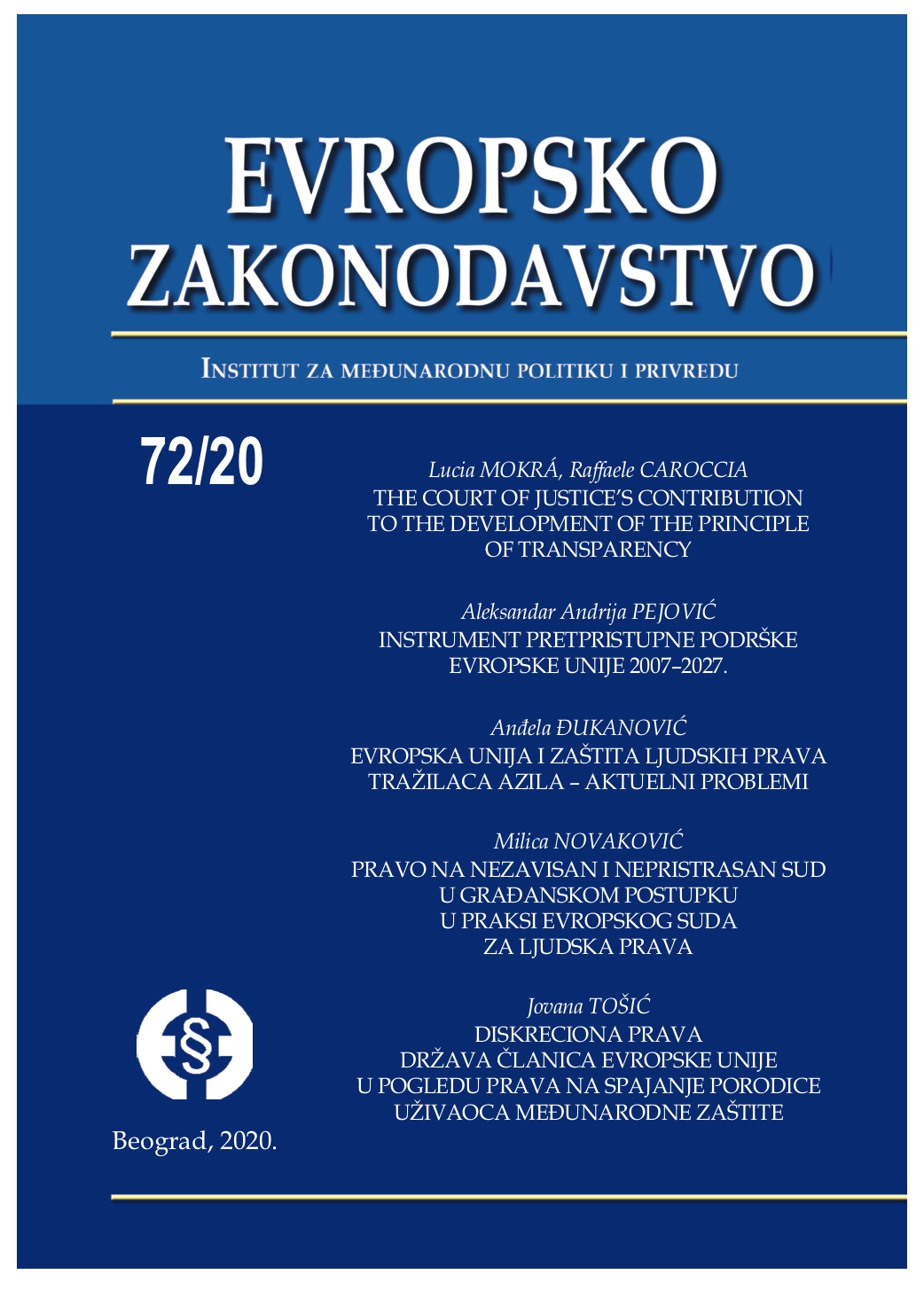Diskreciona prava država članica Evropske unije u pogledu prava na spajanje porodice uživaoca međunarodne zaštite
Discretionary powers of the EU member states in terms of family reunification rights of internationally protected beneficiaries
Author(s): Jovana TošićSubject(s): Law, Constitution, Jurisprudence, EU-Legislation
Published by: Институт за међународну политику и привреду
Keywords: Family Reunification Directive; best interest of the child; international protection; proportionality principle; discretionary powers; subsidiary protection; Dublin system
Summary/Abstract: Following the outbreak of the European migration crisis in 2015, the Member States of the European Union started imposing certain limitations on the right to family reunification of international protection beneficiaries with the aim of protecting their national securities and territorial integrities. In a considerable number of cases, the Member States used their discretionary powers disproportionately, which adversely affected the international protection beneficiaries. With regard to the proportionality of discretionary powers, it is necessary to analyse relevant instruments of the EU secondary legislation (Family Reunification Directive, Qualification Directive and the current Dublin III Regulation) but also their practical implementation by the Member States. The analysis conducted stipulates that the EU offers an incomplete legal framework, thus leaving an open space for different interpretations. Additionally, the lack of political will among the Member States has created an incoherent approach in terms of i) definition of a family, ii) the status of subsidiary protection beneficiaries and iii) procedural conditions for family reunification. In the absence of an adequate approach, the case-law of the CJEU and the ECHR continues to play a significant role in contributing to the system of international protection in the Union. However, the lack of implementation mechanisms remains a significant issue. The Member States and the Union could improve their policies and overcome existing obstacles by redefining their goals and legislations, along with harmonization of national practices in accordance with court verdicts. Nevertheless, poor political cooperation seems to be the greatest obstacle at this point.
Journal: Европско законодавство
- Issue Year: 2020
- Issue No: 72
- Page Range: 80-96
- Page Count: 17
- Language: Serbian

